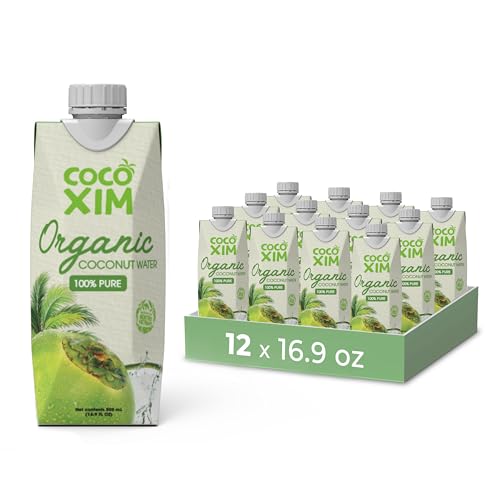Root beer is generally considered halal, but it's best to check each brand's certification and ingredients. Most commercial brands don't contain alcohol, yet the name "beer" raises eyebrows for some. The Indonesian Council of Ulama states that root beer can't be halal certified solely because of its name. To make sure you're making safe choices, look for brands that clearly state their halal status. Stick around to uncover more insights about this fizzy drink!

Is root beer halal? This question often pops up among those mindful of dietary laws, especially when it comes to understanding what's permissible.
Root beer is primarily a non-alcoholic beverage, and most commercial brands like A&W and Barq's typically don't contain intoxicating alcohol. This makes them suitable for halal consumption. However, there's a common misconception that muddles the waters: the name itself.
Root beer is a non-alcoholic beverage, making it generally suitable for halal consumption, despite concerns about its name.
You might be surprised to learn that the Indonesian Council of Ulama (MUI) has stated that root beer can't be halal certified simply because of its name, which alludes to liquor. Even though the ingredients in most root beers are halal-compliant, their association with "beer" raises red flags in the eyes of MUI.
To achieve halal certification, the beverage would need to drop the term "beer" entirely, as MUI places significant emphasis on sharia compliance in product naming. This is crucial for those of you looking for certified halal options.
When you dive into the brewing process, you'll find that root beer is often flavored with natural ingredients. Most brands steer clear of haram ingredients, but it's wise to check labels for specific brand formulations. Additionally, just as seeds are safe for gluten-free diets, root beer's ingredients should also be scrutinized for dietary compliance.
While the alcohol content in commercially available root beers is negligible, some people might still hesitate due to the lingering association with alcoholic beverages. As a consumer, it's your responsibility to ensure what you drink aligns with your beliefs.
For those of you who want peace of mind, opting for brands that explicitly state halal certification can make a difference. This ensures that you're choosing products that adhere to dietary laws.
You should always take a moment to review the production process and ingredient list, just to be safe.
Frequently Asked Questions
Is Root Beer Is Halal or Haram?
You might wonder if root beer is halal or haram. While root beer is typically non-alcoholic and made from halal ingredients like sarsaparilla root, its name includes "beer," which some interpret as problematic.
The Indonesian Council of Ulama doesn't certify it as halal due to this association. To be safe, check for halal certification and ensure there are no haram additives in your preferred brand before enjoying a refreshing glass.
Is 0.5% Alcohol Halal?
So, you think 0.5% alcohol is just a tiny splash in your drink? Well, think again!
For many strict Muslims, even that minuscule amount can turn your refreshing sip into a haram headache.
Halal guidelines are clear—any detectable alcohol is a no-go.
You might enjoy that fizzy flavor, but if you're serious about halal, it's best to steer clear of anything that might dance on the edge of intoxicants, no matter how small.
Can Muslims Drink Ginger Beer?
You can drink ginger beer, but it's best to check the label first.
Most ginger beers are non-alcoholic and made from ginger, sugar, and water, making them generally permissible. However, some brands may ferment their ginger beer, resulting in trace amounts of alcohol.
Always look for halal certification to ensure it meets your dietary needs. Brands like Fever-Tree and Bundaberg often offer halal-certified options, so you can enjoy ginger beer worry-free.
Which Drink Is Halal in Islam?
Did you know that around 75% of non-alcoholic beverages are considered halal when they don't contain haram ingredients?
When choosing drinks in Islam, opt for those like juices, milk, or sodas that comply with dietary laws.
Always check labels for halal certifications, especially for beverages that may suggest alcohol, like "beer" or "wine."

Maine Root Beer, 4 ct
Organically sweetened
As an affiliate, we earn on qualifying purchases.
As an affiliate, we earn on qualifying purchases.
Conclusion
So, when you crack open that frosty bottle of root beer, you can savor the rich, sweet aroma without a worry. Most root beers are indeed halal, bubbling with flavor and free from any forbidden ingredients. As you take a sip, let the creamy vanilla and hints of sassafras dance on your taste buds, reassuring you that you can enjoy this classic treat guilt-free. Cheers to refreshing moments that align with your values!

BERO Variety Pack Non-Alcoholic Beer, Non-Alcoholic Craft Ale, Hoppy IPA Style Craft Brew, NA Beer by Tom Holland, Refreshing Alcohol Alternative Beverages for Any Occasion – Pack of 12
PREMIUM NON-ALCOHOLIC IPA: Discover BERO’s award-winning beers in a variety pack bundle. Three cans each of Kingston Golden…
As an affiliate, we earn on qualifying purchases.
As an affiliate, we earn on qualifying purchases.

COCOXIM Ready to Drink Organic Coconut Water – 16.9 oz (Pack of 12) | Zero Added Sugar| 100% Natural & Fresh with Electrolytes & Nutrients | Halal & Kosher Certified | Alternative to Soda, Soft Drinks and Sports Drinks
100% ORGANIC AND SUGAR FREE- Made from 100% organic coconut water, this drink delivers a refreshing boost of…
As an affiliate, we earn on qualifying purchases.
As an affiliate, we earn on qualifying purchases.

Maine Root Beer, 4 ct
Organically sweetened
As an affiliate, we earn on qualifying purchases.
As an affiliate, we earn on qualifying purchases.









